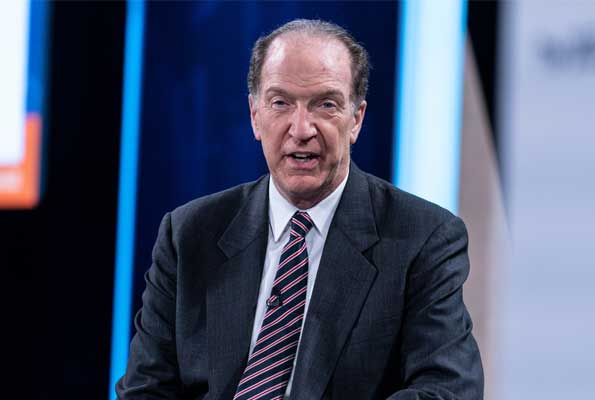As annual financing needs reach USD 2.4 trillion, World Bank President David Malpass unveiled a new road map for private sector involvement in project financing across emerging and developing economies.
A recent estimate by the financial institution shows that vast amounts of money are needed yearly to deal with the effects of pandemics, war, and climate change. David Malpass says private capital is “critical” for addressing these demands.
David Malpass gave notice of his resignation from the World Bank in February 2023, and the lender anticipates choosing his successor by the beginning of May this year.
He stated that the programme is built upon three pillars: improving capital flow by supplying macro stability and openness and creating data banks that aid decision-making.
At a Center for Strategic and International Studies event in Washington, David Malpass said, “The outcome of these analytics will focus on activities that countries need to take for a sound investment climate, competitive markets, and a balanced role of the State in the economy.”
The road map then focuses on the potential for State Owned Companies to attract private capital while resolving liquidity challenges.
Finally, it reportedly hopes to establish an institutional investor-friendly market for investment-grade securities.
To diversify risk and minimise financing costs, David Malpass stated, “Our long-term aim is to see the emergence of a vast, dynamic, investable asset class for infrastructure in developing nations that spans borders and sectors.”
“The project will support inclusive, ecologically responsible, low-carbon, improved energy access, poverty alleviation, and the necessary rate of global digitalization,” the official added further.
Meanwhile, The International Monetary Fund, World Bank and the current G20 president India will convene a new sovereign debt roundtable again on April 3, 2023, with an eye to accelerating work on debt relief for countries in need.
The gathering of deputies will be followed by a principals’ meeting on the sidelines of the World Bank and International Monetary Fund spring meetings in Washington, an official informed Reuters. However, no date has been set for the event so far.
The meeting comes amid continued delays in securing debt treatment agreements for African countries like Zambia, Ghana and Ethiopia. The United States and others have blamed China, now the world’s largest bilateral creditor, behind the phenomenon.
IMF Managing Director Kristalina Georgieva will travel to China in the last week of March 2023 to meet China’s new leadership team, including new Premier Li Qiang and Vice Premier He Lifeng, who replaced Liu He as China’s top economic official.
IMF spokesperson Julie Kozack said the next meetings would build on progress made by the roundtable in bringing together creditors and debtor countries to discuss ways to accelerate the debt restructuring process.
Ghana, Zambia and Ethiopia are at various stages of the process, but debt experts say China’s agreement to provide financing assurances for Sri Lanka could provide fresh momentum for moving forward on those separate cases.



